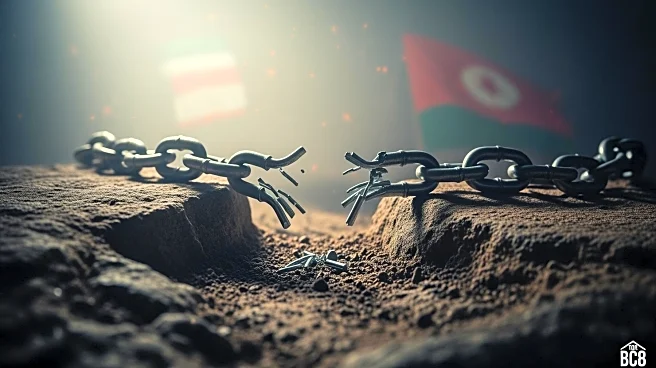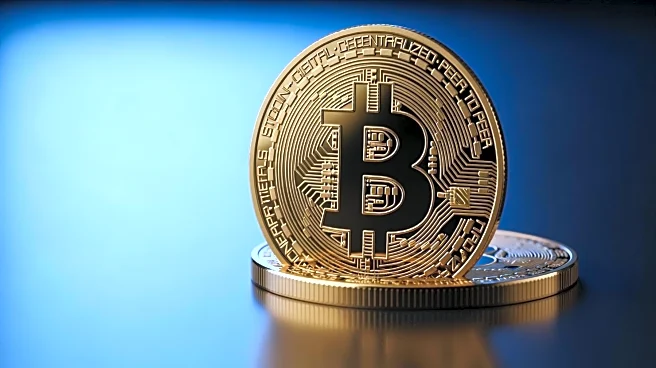What's Happening?
Israeli troops conducted a raid in the southern Lebanese town of Blida, resulting in the death of a municipal worker named Ibrahim Salameh. The operation, which involved drones and light armored vehicles, was aimed at dismantling Hezbollah infrastructure,
according to the Israeli military. The incursion has sparked outrage in Lebanon, where a ceasefire had previously ended hostilities between the two nations last November. Lebanese President Joseph Aoun has instructed the army to confront any Israeli incursions, while Prime Minister Nawaf Salam condemned the raid as a violation of Lebanese sovereignty. Protests erupted in Blida and nearby towns, with residents blocking roads to express their anger over the incident.
Why It's Important?
The raid underscores the ongoing tensions between Israel and Hezbollah, a Shia Muslim group backed by Iran. The escalation could destabilize the region further, impacting diplomatic relations and security dynamics. Lebanon's government is under pressure to respond to what it views as violations of its sovereignty, which could lead to increased military engagements or diplomatic efforts to resolve the situation. The incident also highlights the fragile nature of the ceasefire agreement and the challenges in maintaining peace in the region. The international community, including the United Nations, may need to intervene to prevent further escalation.
What's Next?
Lebanon plans to continue pressing the United Nations and ceasefire guarantors to ensure a halt to Israeli violations and to implement a complete withdrawal from Lebanese territory. The Lebanese army may increase its presence in the south to deter further incursions. Diplomatic efforts could be intensified to address the violations and seek a long-term resolution to the conflict. The situation remains volatile, with potential for further military actions or protests, depending on how both nations choose to proceed.
Beyond the Headlines
The incident raises questions about the effectiveness of international peacekeeping efforts and the role of external actors in regional conflicts. The ongoing tensions could affect Lebanon's internal political dynamics, especially with Hezbollah's influence in the government. The situation also poses ethical dilemmas regarding the use of military force and the protection of civilian lives in conflict zones.
















